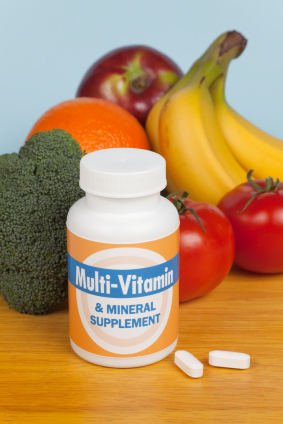The Benefits of Selenium
The Benefits of Selenium
By: Dr. George Obikoya
Selenium: could be your most potent ally against cancer. Selenium is a trace element found naturally in foods like nuts and liver. Nearly all of the selenium in animal tissue is found in the proteins. Some of these proteins contain stoichiometric quantities of selenium and are known as selenoproteins. Other proteins contain variable amounts of selenium (which substitutes sulfur randomly in the original protein) and are known as selenium-binding proteins.
Researchers for more than 20 years animal studies have suggested that tiny amounts of selenium in the diet can reduce the risk of cancer in several organs, but much less is known about the anti-cancer benefits of selenium in humans. In recent years, laboratory experiments, clinical trials and epidemiological data have established the role of selenium in the prevention of a number of degenerative conditions including cancer, inflammatory diseases, cardiovascular disease, neurological diseases, aging, and infections. Most of these effects are related to the function of selenium in the antioxidant enzyme systems. A good source of selenium is a high-quality liquid multivitamin.
A study at the University of Arizona in Tucson in 1996 found that people who took 200 mcg of selenium a day for four and a half years reduced their risk of cancer by 32 percent and their risk of death from cancer by 50 percent. It seems, though, that someone's genes may determine whether or not selenium supplements may reduce the risk of breast cancer. New research suggests that people with a certain genetic variation may benefit more from taking the popular nutritional supplement to reduce their risk of breast cancer.
Numerous research reports indicate that higher blood levels of selenium lowers mortality from cancer including lung, colorectal, prostate and skin cancer1. Laboratory studies indicate the potentially beneficial role of selenium in the management of mammary cancer2. Selenium is an antioxidant and appears to regenerate vitamins E and C so that they can continue to fight free radicals. Selenomethionine is its best form. You need 200 mcg a day with food. Be aware that doses of more than 400 mcg daily can be toxic.
Research also shows that a lower antioxidant status has been linked
to higher incidence of cardiovascular diseases due to increased
levels of LDL oxidation3,4. Selenium is one of the antioxidants
that may help to inhibit LDL oxidation.
Indeed, Selenium is one of the antioxidant vitamins recently reviewed
by The National Academy of Sciences (NAS)5. The new RDAs for antioxidant
nutrients are: vitamin C (75 milligrams (mg) for women and 90 mg
for men), vitamin E (15 mg), and selenium (55 micrograms (mcg)).
The NAS report also established tolerable upper intake levels (ULs) for vitamin C (2,000 mg), vitamin E (1,000 mg) and selenium (400 mcg). ULs for adults are set to protect the most sensitive individuals of the general population. Selenium is reported to mimic the action of insulin. Studies have shown that selenium mediates a number of insulin-like actions such as stimulating glucose uptake and regulating metabolic processes including glycolysis, gluconeogenesis, fatty acid synthesis and the pentose phosphate pathway.
Although the exact mechanism of the insulin mimicking action of selenium has as yet to be elucidated, it is reported that these actions are mediated through the activation of key proteins involved in the insulin-signal cascade6. Selenium is also reported to play a role in reducing the oxidative stress associated with diabetes7, thereby retarding the progression of the secondary complications of diabetes such as neuropathy, retinopathy and cataracts. Low selenium status has been associated with the incidence of arthritis. Studies show the beneficial role of selenium as a free radical that delays the progression of this condition.
Low levels of selenium in HIV /AIDS sufferers have been linked to higher mortality. Low plasma selenium status has also been linked with senility and cognitive decline in the elderly and with Alzheimer's disease.
Selenium supplementation was observed to reduce the severity of
epileptic seizures in children. Selenium supplementation is also
reported to improve confused and depressed mental states; mental
fatigue and anxiety in adults.
Selenium deficiency reduces the activities of the selenium-dependent
antioxidant enzymes, leading to a number of functional disorders
including skeletal muscke dysfunction, cardiac dysfunction, hepatic
degradation, increased capillary permeability, and pancreatic degeneration.
Very low selenium status is a factor in the etiologies of a specific type of juvenile cardiomyopathy (Keshan's Disease) and a chondrodystrophy (Kaschin-Beck Disease) that were observed in selenium-deficient regions of China.
A good multivitamin is the foundation of health
and nutrition. Take a look at our scientific reviews of many of
the popular brands for factors such as ingredients, areas of improvement,
quality level, and overall value. If you are looking for a high
quality liquid multivitamin, we suggest that you take a look at
the Multivitamin
Product Comparisons.
References:
1. Decensi, A, Costa, AS. (2000) Recent advances in cancer chemoprevention,
with emphasis on breast and colorectal cancer. Eur. J. Cancer. 36(6):694-709.
2. Ip, C. et al. (2000) Selenium modulation of cell proliferation and cell cycle biomarkers in normal and premalignant cells of the rat mammary gland. Cancer Epidemiol Biomarkers Prev 9(1):49-54.
3. Ozer, N.K. et al. (1995) New roles of low density lipoproteins and vitamin E in the pathogenesis of atherosclerosis. Biochem. Mol Biol. Int. 35:117-24.
4. Neve, J. (1996) Selenium as a risk factor for cardiovascular diseases. J. Cardiovasc. Risk 3:42-47.
5. National Academy of Sciences, Press release, April 10, 2000.
6. Stapleton, S.R. (2000) Selenium: an insulin-mimetic. Cell Mol Life Sci. 57(13-14):1874-9.

